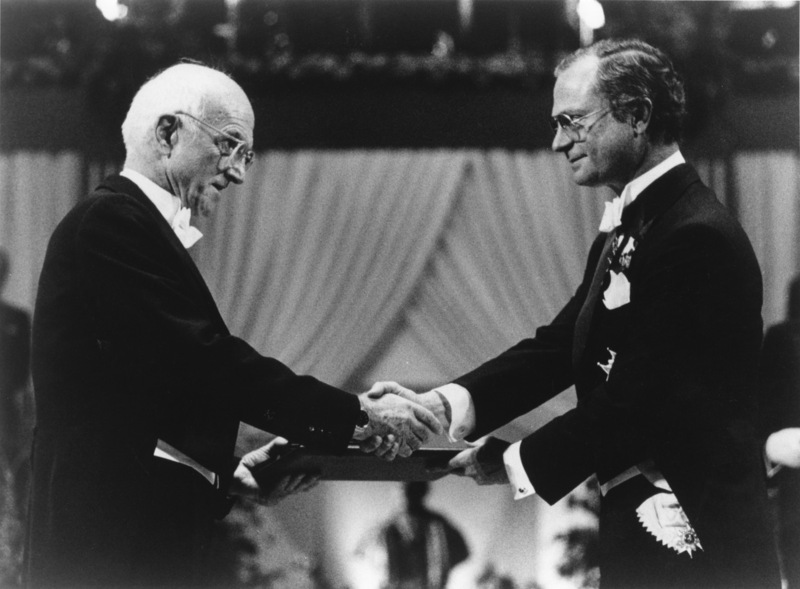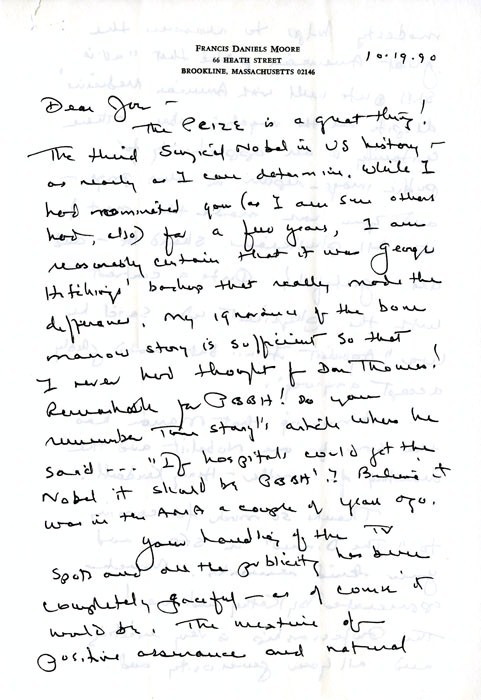Nobel Prize
Murray suffered a stroke in 1986 and after his recovery retired from seeing patients, lecturing, and from his administrative responsibilities. Following his retirement, Murray, as he states in his autobiography, began to reflect on his legacy:
But as I was puttering around on the Vineyard one day ... I reviewed my life and began to think that the world had passed me by, that my contributions to surgery had already been forgotten. I wrote as much to my youngest son, Rick, in August of 1990. Two months later, I was informed that I had won the Nobel Prize in medicine.
Murray, along with E. Donall Thomas, recived the 1990 Nobel Prize in Physiology or Medicine "for their discoveries concerning organ and cell transplantation in the treatment of human disease." Biochemists George Hitchings and Gertrude Elion, Murray's colleagues who worked with him and Roy Calne on the development of the immunosuppressant drug Imuran, had been awarded the 1988 Nobel Prize in Physiology or Medicine. Murray donated the prize money to Harvard Medical School, Brigham and Women's Hospital, and Children's Hospital.


